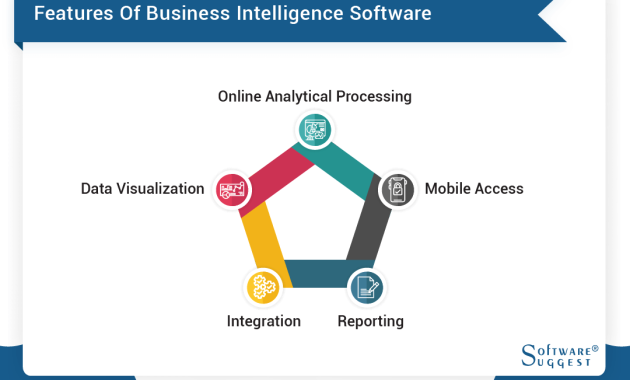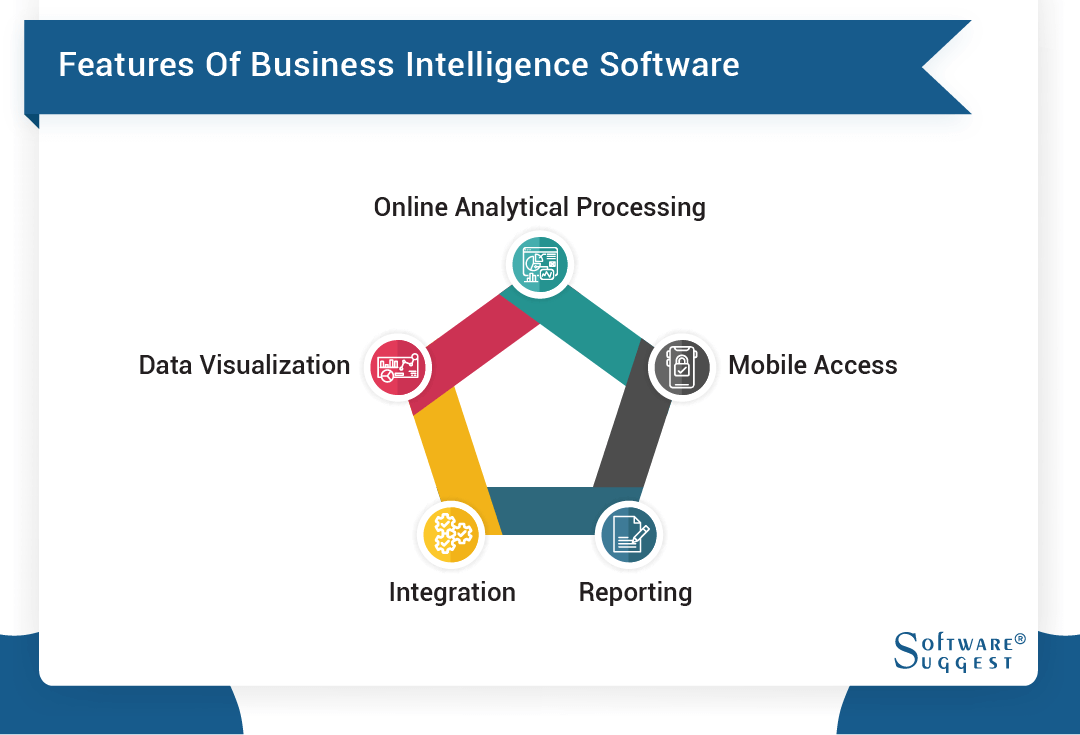
Find Business Opportunities with Business Intelligence Software: A Strategic Guide
In today’s data-driven world, businesses are constantly seeking a competitive edge. One of the most potent tools in this quest is business intelligence (BI) software. This software empowers organizations to collect, analyze, and interpret complex data sets. The insights gained from this process can unlock a wealth of business opportunities. This article delves into how you can find business opportunities with business intelligence software. We will explore its capabilities, benefits, and real-world applications.
Understanding Business Intelligence Software
Business intelligence software is more than just a data analysis tool. It is a comprehensive platform that transforms raw data into actionable information. It encompasses various technologies and methodologies. These include data warehousing, data mining, online analytical processing (OLAP), and reporting. BI software helps organizations understand past performance, current trends, and future possibilities. The goal is to enable better decision-making.
Core Functions of BI Software
- Data Collection and Integration: BI software gathers data from diverse sources. These can include databases, spreadsheets, and cloud applications. It then integrates this data into a unified view.
- Data Analysis and Reporting: The software provides tools for analyzing data. These tools include dashboards, reports, and data visualizations. Users can identify trends, patterns, and anomalies.
- Data Visualization: BI software uses charts and graphs. These help users understand complex data. Visualizations communicate insights more effectively.
- Predictive Analytics: Some BI tools offer predictive analytics capabilities. They can forecast future trends and outcomes. This informs proactive decision-making.
Identifying Business Opportunities Through Data Analysis
The primary value of BI software lies in its ability to uncover hidden business opportunities. By analyzing data, businesses can gain valuable insights. These insights can translate into strategic advantages. Here’s how BI software helps identify opportunities:
Market Analysis and Customer Insights
BI software allows businesses to analyze market trends. It helps them understand customer behavior. This includes demographics, purchasing patterns, and preferences. Armed with this information, companies can tailor their products and services. They can also target the right customer segments. This can lead to increased sales and market share.
Operational Efficiency and Cost Reduction
BI software can identify inefficiencies within business operations. By analyzing processes, businesses can pinpoint areas for improvement. This can include streamlining workflows, automating tasks, and optimizing resource allocation. Such improvements lead to cost savings and increased productivity. These are significant business opportunities.
Product Development and Innovation
Data analysis can reveal unmet customer needs. It can also identify emerging market trends. BI software can help businesses develop new products. These products can better meet customer demands. It can also help them innovate existing offerings. This fosters a competitive edge.
Risk Management and Compliance
BI software can help businesses identify and mitigate risks. It does this by analyzing data related to fraud, security breaches, and regulatory compliance. By proactively addressing these risks, companies can protect their assets. They can also ensure they remain compliant with industry standards. This is a critical business opportunity.
Real-World Examples of BI Software in Action
The impact of BI software is evident across various industries. Several companies have successfully leveraged BI to identify and capitalize on business opportunities:
Retail
Retailers use BI software to analyze sales data. They use it to understand customer behavior. This helps them optimize product placement. It also helps them manage inventory levels. They can also personalize marketing campaigns. This drives sales and improves customer satisfaction. [See also: Retail Analytics: Driving Sales with Data]
Healthcare
Healthcare providers use BI software to analyze patient data. They use it to improve patient care. They also optimize resource allocation. This leads to better health outcomes. It also reduces costs. BI helps identify areas for improvement in treatment protocols.
Manufacturing
Manufacturers use BI software to monitor production processes. They use it to identify bottlenecks. They also improve quality control. They can also optimize supply chain management. This leads to greater efficiency and lower operational costs.
Finance
Financial institutions use BI software to detect fraud. They also assess risk. They also improve customer service. They use it for compliance. This helps them make informed investment decisions. It also improves financial performance.
Implementing Business Intelligence Software: Best Practices
Successful implementation of BI software requires careful planning and execution. Consider the following best practices:
Define Clear Business Objectives
Before implementing BI software, define your goals. Determine what you want to achieve. Identify the key performance indicators (KPIs) that will measure success. This will ensure that the software aligns with your business strategy.
Choose the Right Software
Select BI software that meets your specific needs. Consider factors such as scalability, ease of use, and integration capabilities. Evaluate different vendors and platforms. Choose the one that offers the best value for your organization. Researching what other companies use is a great way to start. [See also: Selecting the Right BI Software: A Comprehensive Guide]
Ensure Data Quality
Data quality is crucial for accurate insights. Implement data governance policies. Ensure data is clean, consistent, and reliable. Data must be accurate to make informed decisions. This includes regular data cleansing and validation.
Provide Training and Support
Invest in training for your employees. Ensure they understand how to use the BI software effectively. Provide ongoing support and resources. This will maximize the value of the software. It also ensures users are comfortable with the system.
Foster a Data-Driven Culture
Encourage a culture of data-driven decision-making. Promote the use of data insights. Encourage employees to use data to solve problems. This will drive innovation and improve business performance. Make data accessible and understandable to all stakeholders.
The Future of Business Intelligence and Business Opportunities
The field of BI is continuously evolving. Emerging technologies like artificial intelligence (AI) and machine learning (ML) are transforming the landscape. These technologies enhance BI capabilities. They offer new possibilities for identifying business opportunities.
Artificial Intelligence and Machine Learning
AI and ML are enabling more advanced data analysis. They are automating tasks. They are also providing predictive insights. This allows businesses to anticipate future trends. It also allows them to make more informed decisions. AI-powered BI tools can identify hidden patterns. These patterns can lead to new business opportunities.
Big Data and Cloud Computing
The rise of big data and cloud computing has created new opportunities. Businesses can now store and process vast amounts of data. Cloud-based BI solutions offer scalability and flexibility. This enables organizations to analyze data more efficiently. This leads to better insights and business opportunities.
Self-Service BI
Self-service BI tools empower business users. These tools enable them to analyze data. They can also generate their own reports and dashboards. This increases data literacy. It also accelerates decision-making. It enables teams to quickly find business opportunities.
Conclusion: Seizing Opportunities with BI Software
Business intelligence software is a powerful tool. It can unlock significant business opportunities. By leveraging data analysis, businesses can gain a competitive edge. They can optimize operations. They can also improve customer engagement. They can also innovate. Implementing BI software requires strategic planning. It also requires a commitment to data quality. Businesses can transform their data into actionable insights. They can identify new business opportunities. They can drive growth and success. Embrace the power of BI. Position your business for future success.

